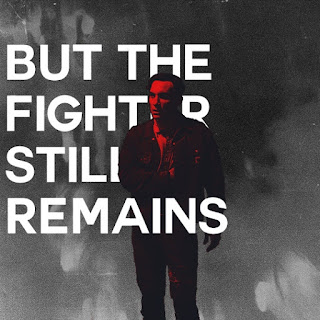And I realized that he might just as well be talking about the news media of our day, about the political system right now, even of the education system in our world. I sat up and paid more attention to what the Bible is saying here. These are direct quotes from the Bible, remember:
• “Let his days be few, And let another take his office. Let his children be fatherless, And his wife a widow.” (Let him die!)
• “Let the creditor seize all that he has, And let strangers plunder his labor.” (Let him go bankrupt.)
• “As he clothed himself with cursing as with his garment, So let it enter his body like water, And like oil into his bones. Let it be to him like the garment which covers him, And for a belt with which he girds himself continually.” (That's just messed up!)
And as I was listening, I found myself repulsed. “God, that’s messed up! I can’t pray this for my enemies! Who was the demented person was that wrote this, anyway?” Oh wait. King David, the “man after God’s heart” wrote these words. <gulp>
My powerful reaction ‒ and his patient response to my reaction ‒ went on for some time. “Christians can’t pray this way. We’re supposed to love our enemies! [“But I say to you, love your enemies, bless those who curse you, do good to those who hate you, and pray for those who spitefully use you and persecute you…” Matthew 5] Are you rescinding that instruction?
“No, absolutely not. But I am re-shaping your understanding of it. My children have long labored under the delusion that godliness required them to be ‘nice’ to people who were abusing them.”
And he reminded me of Hebrews 12: “No discipline seems pleasant at the time, but painful. Later on, however, it produces a harvest of righteousness and peace for those who have been trained by it.” In the same breath, he reminded me of my mother’s famous “spank spoon.”
In no way did she ever want me to die! She didn’t even want me maimed. But she was dealing with a high-energy little boy who didn’t understand limits very well. And it took a big smack to teach me the lesson. (She used to buy wooden spoons by the dozen; I needed help learning.)
Now at this point in this discussion, I could go one of two ways. I could go on about the right way to apply this sort of prayer in 21st century America, and maybe both help some folks not to be scared off by this sort of prayer and help some other folks not to pick up arms and slice off a persecutor’s ear.
Or I could turn left to the point that God was making with me. I think I’ll do that.
“Son, it’s time for my children to learn to get a little more fierce, a little more dangerous in their prayers for the people who are trying to be their enemies. There’s a time to pray angrily.” (Did you ever notice the command for us to be angry? Ephesians 4:26 says “Be angry, and do not sin.” The first command there is to be angry, at least sometimes. The rest of the verse gives limits.)
In practical terms, it is appropriate to be angry that Charlie Kirk is now dead, that hell is paying rioters in the streets, that little kids are being stolen away from their families. And it is good and healthy for that anger to shape and to power our prayers. (It’s also appropriate for us to live within the rest of Ephesians 4’s limits on anger.)
My *very strong* recommendation is to listen very closely to Holy Spirit if you feel the urge to pray this sort of prayer. I remind us: David was a man after God’s own heart. If we are not first and foremost after God’s heart, this is not safe territory; it’s too close to giving a little kid a loaded gun to deal with schoolyard bullies. Don’t do it!
But when this is on Jesus’ heart, when you feel Father pointing you this direction, when Holy Spirit is nudging you, don’t rebel and decline to exercise the tools he’s given us. Go carefully, but go there when he is taking you there.
“My children need to not be afraid of their anger, of their ferocity. That’s from me. Use it.”

















